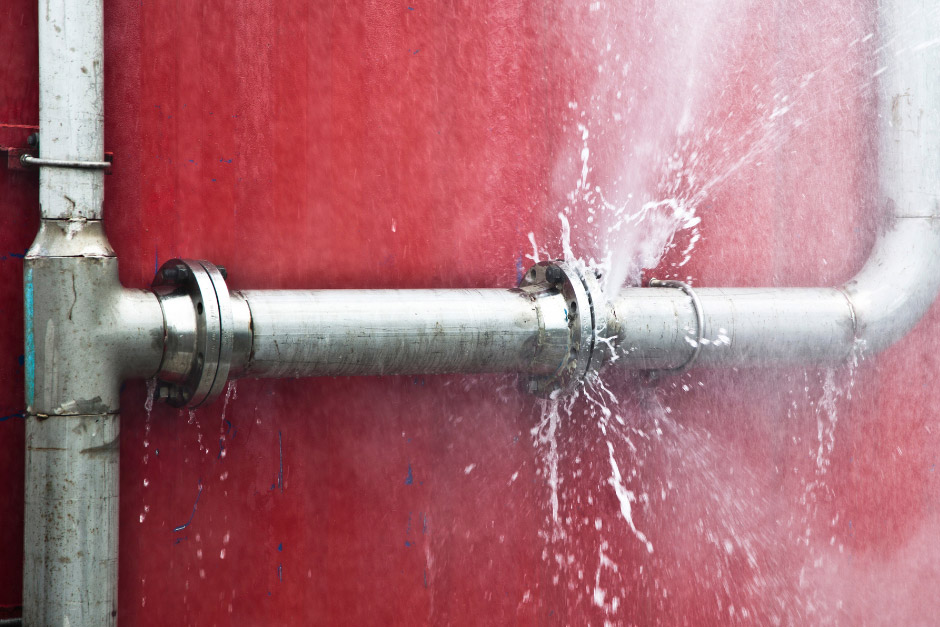When we think of bursting water pipes, winter’s icy grip usually comes to mind. However, the heat of summer can be just as treacherous for your plumbing system. As temperatures soar, so do the risks to your water pipes, which can crack and burst under the seasonal strain. Imagine enjoying a sunny day in your garden, only to discover a sudden flood ruining the moment. From the relentless heat causing thermal expansion to the increased water demand during those hot months, the reasons behind summer pipe bursts are as varied as they are surprising. Dive into this blog to uncover why your water pipes are vulnerable in summer and how you can safeguard your home from these unexpected and costly disruptions.
Reasons Why Water Pipes Burst In The Summer
Thermal Expansion And Contraction
During the summer, the intense heat can cause the materials in your water pipes to expand. This thermal expansion puts stress on the pipe joints and connections, especially if they are old or already weakened. As the temperature fluctuates between hot days and cooler nights, the constant expansion and contraction can lead to cracks and eventually bursts. Imagine the metal of your pipes stretching out in the scorching afternoon sun, only to contract again as evening cools, much like a rubber band being stretched and released repeatedly—over time, it can snap.
Increased Water Demand And Pressure
Summer activities like watering lawns, filling pools, and increased shower use can significantly raise the water demand in your household. This surge in water usage can elevate the pressure within your pipes. If the pipes or the water pressure regulator are not in optimal condition, this increased pressure can cause weak spots in the pipes to fail. Picture turning on all your garden sprinklers on a sweltering day, along with your neighbour doing the same—this simultaneous demand spikes the pressure in the municipal water supply system, creating a domino effect that can lead to pipe bursts.
Ground Shifting and Soil Movement
Prolonged periods of heat can dry out the soil, causing it to shift or settle. This ground movement can put pressure on underground pipes, leading to misalignment or cracks. When the soil shifts, it can be like a slow-motion earthquake, subtly but persistently pressing against your water pipes until they cannot hold up any longer. Visualise the earth beneath your feet subtly moving and settling differently after weeks of hot, dry weather, creating stress points on the pipes lying underground.
Corrosion And Ageing Infrastructure
High temperatures can accelerate the chemical reactions that cause corrosion in metal pipes. If your plumbing system is older, the summer heat can exacerbate the wear and tear that has accumulated over the years. Older pipes, especially those made of galvanised steel or cast iron, are particularly susceptible to corrosion, which weakens their structural integrity. Imagine an old metal bridge, rusting over time, with each hot summer day hastening the corrosion process until it ultimately fails.
External Mechanical Damage
Summertime often means more outdoor activities that can inadvertently damage exposed water pipes. Whether it is a construction project in the garden, kids playing energetically, or the increased use of garden tools, these activities can lead to accidental bumps or strikes against the pipes. Consider the scene of a family setting up a new fence, only to accidentally dig too close to a water line, causing a sudden and dramatic burst.
Understanding these factors can help you take preventative measures to protect your plumbing system during the scorching summer months, ensuring your home remains safe and dry.
Professional Tips To Safeguard Your Home from Summer Pipe Bursts
1. Insulate exposed pipes
Even in the summer, insulating exposed pipes can help stabilise their temperature and protect them from the stress of thermal expansion. Use foam pipe insulation or wrap vulnerable pipes, especially those in unconditioned areas like garages or basements. This not only helps in winter but also mitigates the impact of summer heat.
2. Monitor and regulate water pressure
High water pressure can be a silent culprit in pipe bursts. Install a pressure regulator if you do not have one and ensure your household water pressure stays within the recommended range of 40-60 psi. Regularly check the pressure with a pressure gauge and adjust as needed.
3. Regular maintenance and inspections
Schedule regular inspections with a professional plumber to check for signs of wear and tear, corrosion, or leaks. Catching these issues early can prevent them from escalating into major problems. During these inspections, ask the plumber to assess the condition of your pressure regulator and the integrity of your plumbing system.
4. Manage water usage wisely
Avoid sudden spikes in water usage by spreading out high-demand activities. Water your lawn during cooler parts of the day, use pool covers to prevent evaporation (reducing the need to refill frequently), and stagger the use of water-heavy appliances like dishwashers and washing machines.
5. Install a water softener
If your home has hard water, the minerals can accelerate corrosion and buildup in your pipes. Installing a water softener can help mitigate this issue, prolonging the life of your plumbing system. This is particularly important in older homes with metal pipes.
6. Protect pipes from external damage
Be mindful of outdoor activities that could potentially harm exposed pipes. Before digging for gardening or construction projects, always check for underground pipes. Ensure that kids play safely around areas with exposed pipes and avoid placing heavy objects or machinery near them.
7. Upgrade old plumbing
Consider upgrading old, corroded, or galvanised steel pipes with more durable materials like copper. This proactive investment can prevent unexpected bursts and provide better long-term reliability. A professional plumber can assess your system and recommend the best materials for replacement.
8. Keep soil moist around underground pipes
To prevent the soil from shifting excessively due to prolonged dryness, keep the ground around your home evenly moist. Regularly water your lawn and garden to maintain consistent soil moisture levels, which helps reduce the risk of ground movement affecting your pipes.
9. Install leak detectors and automatic shut-off valves
Installing smart leak detectors and automatic shut-off valves can provide early warnings and immediate responses to potential leaks or bursts. These devices can alert you via your smartphone and shut off the water supply if a significant leak is detected, minimising damage.
10. Educate your household
Ensure everyone in your home knows where the main water shut-off valve is located and how to use it in case of an emergency. Quick action can significantly reduce water damage if a pipe does burst.
If you do need help with a burst pipe, or any other kind of plumbing problems, do not hesitate to give the Happy Dog Plumbing team a call – we would love to help.

